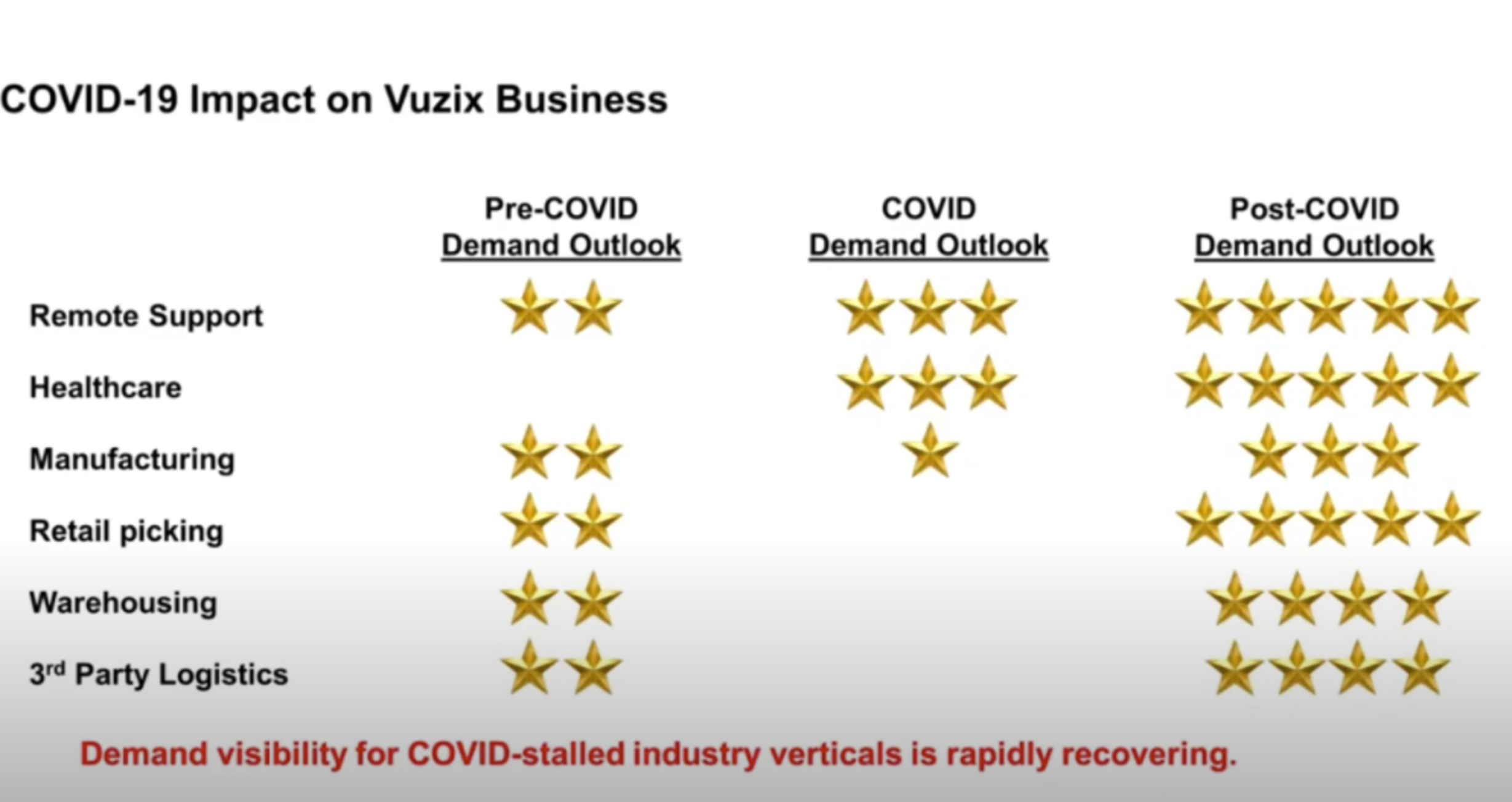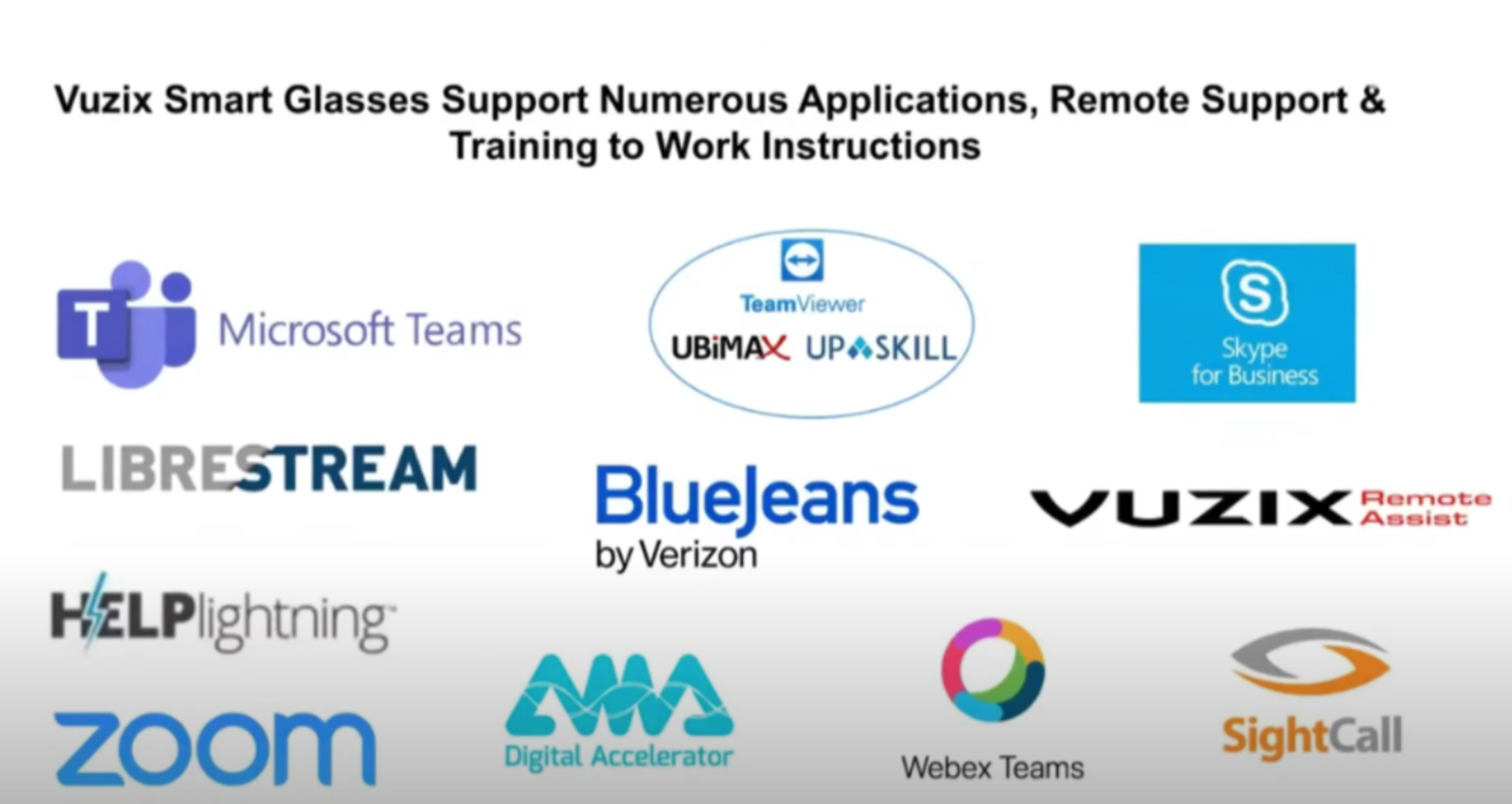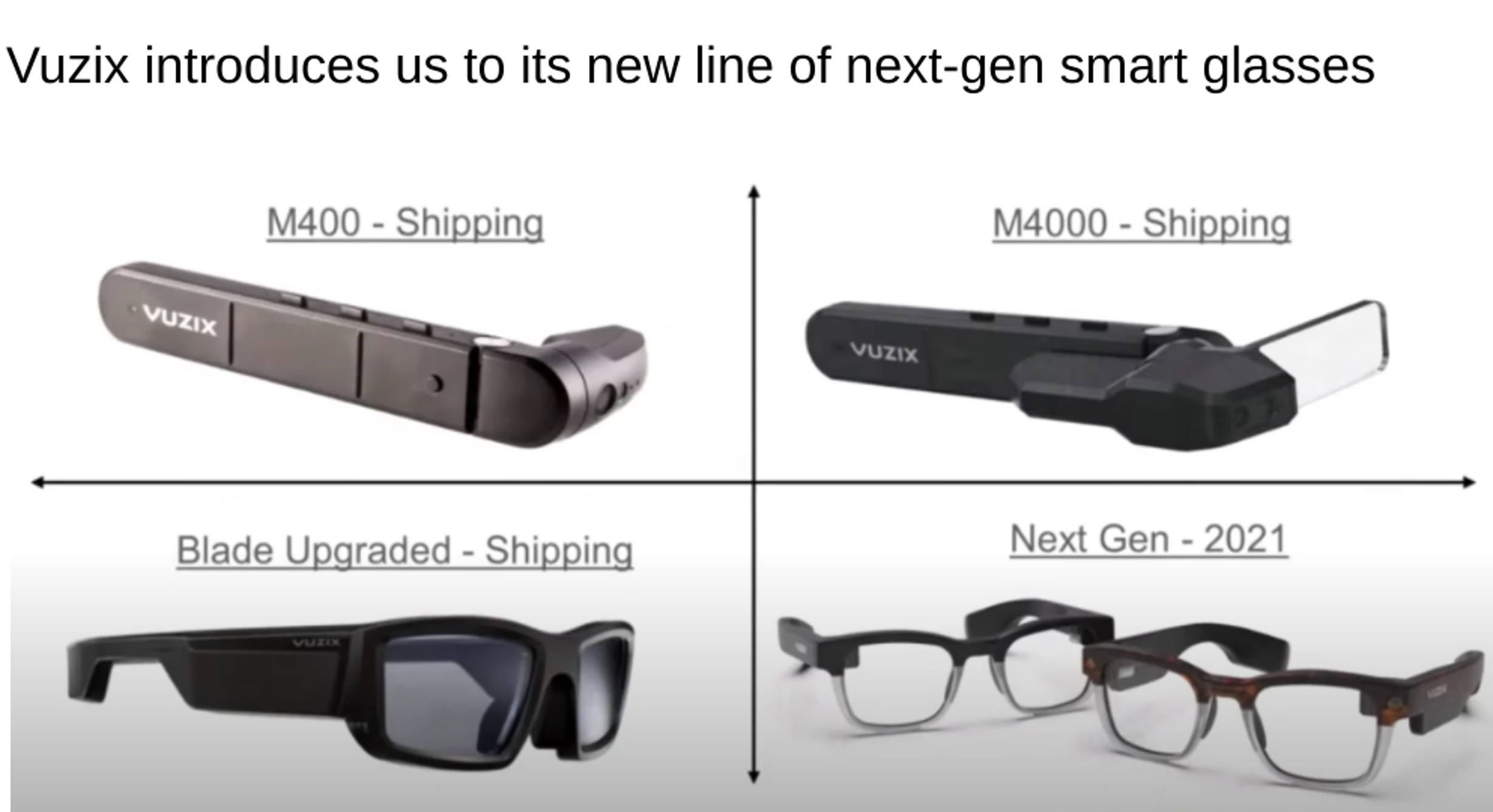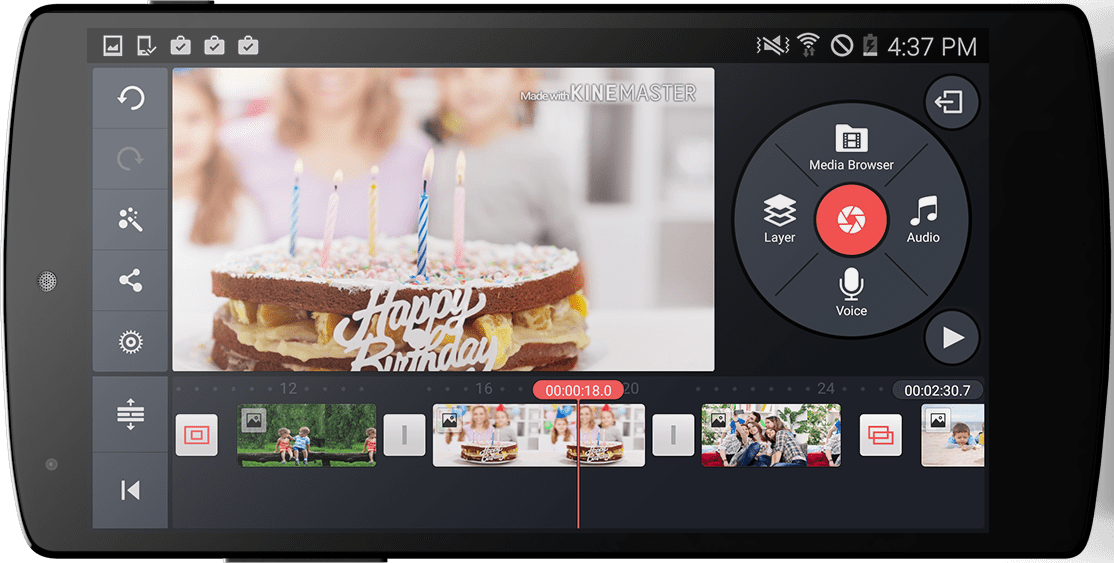
Vuzix | Will the Next Big Trend in Wearables be Smart Glasses?
Previously published to Benzinga: The following post was written and/or published as a collaboration between Benzinga’s in-house sponsored content team and a financial partner of Benzinga.
For the last year, all eyes have been on Vuzix (NASDAQ: VUZI), and now we know why.
Last month, Benzinga hosted its Global Small Cap Conference, where we met with Paul J. Travers, CEO of a totally disruptive company in the wearables arena. His company, Vuzix, is literally changing how we “see” the world.
What is Vuzix?
Vuzix is a $1.1 billion organization based out of Rochester, New York. In the last year and a half, it has seen substantial quarter-over-quarter growth. It’s taken the wearables industry by storm through the advent of its M400 series smart glasses, which use augmented reality (AR) technologies to provide enterprise-level businesses with a new way of doing business.
In the warehouse and construction environment, we see smart glasses increasingly used to pack and sort deliveries, scan barcodes, improve quality control and enhance inventory management. These revolutionary devices simplify logistics not just in the warehousing sector but also in manufacturing, where step-by-step instructions can be provided on-screen to reduce errors during production.
Citing multiple reports, including Markets and Markets, Travers projected that by 2025, the entire wearables market would reach around $70 billion. He also projects that the smart glasses space would be the next biggest trend in wearable technologies.
In Q1, sales of the M400 Smart Glasses tripled while the sales of Blade Smart Glasses rose more than 54%. Currently, Q2 smart glasses demand remains healthy.
How Vuzix Kept the World Spinning — Even During a Pandemic.

According to Travers, “These are the beginnings of a sea change to the future of wearable computing.”
Vuzix is a truly hands-free solution that can perform in any environment.
While the company experienced adoption delays in some usage verticals which were most impacted by the global coronavirus pandemic, it saw an overall increase in demand for businesses that fell within the healthcare and remote support arenas. In March, a Fortune 100 finance and insurance company placed a volume order for Vuzix glasses to use to capture claims information.
The use of wearables became even more prevalent from COVID restrictions. Travers poses the question, “Why would you travel in an airplane when you could just send a pair of glasses?” in reference to travel bans related to the coronavirus.
Last year, Vuzix reported smart glasses sales of $10 million, a 68% year-over-year increase.
Hospitals stepped up virtual surgeries and operations, while at-home visits were more commonplace. Suppliers and manufacturers adopted wearables technologies to improve warehouse operations while travel was limited and social distancing was in full effect.
Vuzix in Telemedicine
- Surgeries and operations
- Virtual rounds and examinations
- Medical training
- Patient intubation
- Long-term care
Original equipment manufacturer (OEM) engagements have expanded from 1 to 5 during 2020. Customers increased productivity while improving worker health and safety. Worker-related errors have been reduced significantly. Project management has been enhanced. Companies have even been able to lower carbon footprints and emissions through use of these devices.
Vuzix provided professionals with increased capacity across remote support and training operations.
What Makes Vuzix a Leader in this Arena

Vuzix has shown itself to be one of the fastest, best-performing smart glass devices on the market. It boasts a number of diverse and compatible software applications that encourage even more rapid adoption.
Its OEM engagements have been through the roof. Because different software types breed different functions, the development and customization of existing applications will lead Vuzix to greater market opportunities, as well as a larger market share.
Many HIPAA-compliant software applications are available on the market. All integrate seamlessly into the Vuzix device protocol. Vuzix headsets work great with communications tools such as Skype, Zoom and WebEx, encouraging teams to collaborate using image mapping technologies and pin-point overlays.
With a superior design, the lightweight Vuzix Android-enabled Smart Glasses come with a variety of effective mounting options. Hardware flexibility provides the wearer with a variety of viewing, gesture and voice control functions that come in handy for the thousands of medical professionals who wear these for more than 16 hours straight — often during surgery.
Because the product is IP67-rated (i.e. waterproof among other things), it can be easily sanitized with alcohol wipes, keeping the environment free of bacteria. While Vuzix’ M-Series Smart Glasses were created to fit over headwear and glasses, Vuzix Blade and planned next generation models are prescription-ready.
Vuzix introduces us to its new line of next-gen smart glasses

Vuzix original head-mounted displays (HMDs) have been getting a facelift, given the recent demand for all-day wear. Today’s high-level amateurs, or prosumers, demand professional-grade equipment. Prosumer grade Vuzix products have amazingly accurate speech recognition, noise-canceling implementations and advanced optics features not found in most competitor brands.
Currently, Vuzix sells three different smart glasses:
- M400: The current flagship model. Images are viewed through an occluded Sony OLED display.
- M4000: Similar to the M400, but uses a custom-developed see-through waveguide that provides an image that floats in front.
- Blade: The first pair of smart glasses to look and feel like regular glasses and sunglasses. Also uses a custom-developed see-through waveguide that provides an image that floats in front.
In development are next-generation smart glasses that will usher in the next phase of fashion-forward look and comfort with an improved AR experience.
The Guts
Vuzix M4000 smart glasses use a 12.8 megapixel camera to provide the wearer with an all-inclusive 4K broadcast-quality video capture experience. Onboard Wi-Fi and Bluetooth connect users to nearby devices.
These glasses use a stereoscopic 3D user interface (UI) polymer or glass waveguides. While they use built-in Android OS, they are iPhone and Android compatible. Ecosystem platforms support development tools, including cloud APIs, advanced sensors and apps within the Vuzix app store.
Why Should Investors be Interested in Backing Vuzix Technologies?
“It’s a great time to be Vuzix,” exclaims Travers.
Vuzix is not just building hardware, it’s building an entire ecosystem. The M4000 and Blade Upgraded, which were introduced last fall, have already begun volume shipment.
The company currently has 192 patents and patents pending surrounding its next-generation technologies, including small projection engines and hologram imagery. Four years ago, it only had 90 — last year, it registered 157 patents. Its next-gen products are slated to be introduced to select customers and developers by the end 2021 and will consist of micro LED-display engines smaller than a pencil eraser that powered a pair of advanced waveguides. They’re also working on solutions for the visually-impaired.
Vuzix has taken its place in the AR world with products that offer “a perfect balance of engagement in the digital and real worlds.” In addition to introducing innovative technology, Vuzix wearables exceed the desires of the discerning fashion hound and the lover of comfort.
The preceding post was written and/or published as a collaboration between Benzinga’s in-house sponsored content team and a financial partner of Benzinga. Although the piece is not and should not be construed as editorial content, the sponsored content team works to ensure that any and all information contained within is true and accurate to the best of their knowledge and research. This content is for informational purposes only and not intended to be investing advice.
The author owns stock in one or more of the above companies.

